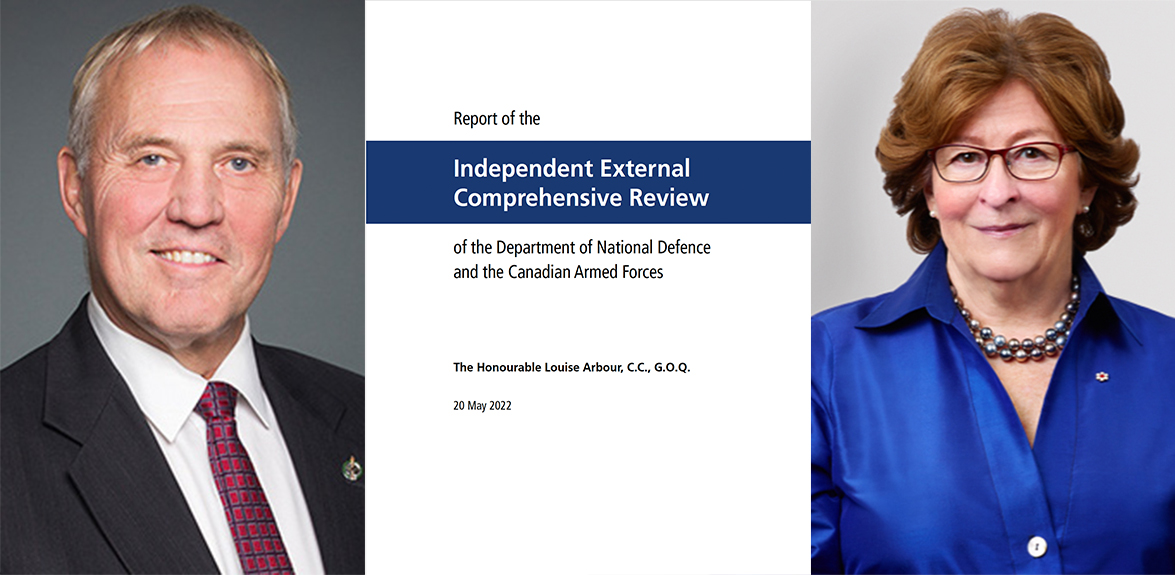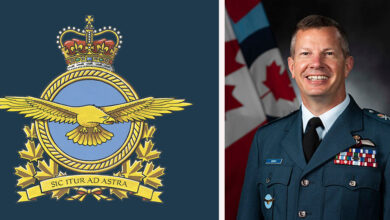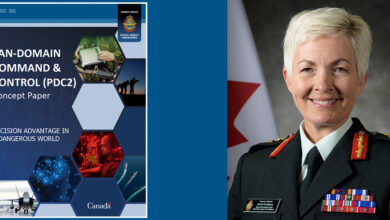Policy
“Much more work to do” Notes Fourth External Monitor Report
Reflecting on the progress the Canadian Armed Forces (CAF) has made over the last three years, Justice Louise Arbour released her fourth External Monitor status report this fall.
The report provides the country with an update on the progress made by the CAF and the Department of National Defence on the 48 recommendations of the Independent External Comprehensive Review (IECR).
The IECR was commissioned by the government in 2021 to launch a sweeping review of the issue of sexual misconduct within the Canadian military.
“As the DND/CAF would readily admit, there is much more work to do. The challenge ahead is how to continue to harvest the energy and focus on workplace improvements that will have the greatest lasting impact, while taking into consideration the intent of the many different external recommendations and bearing in mind that resources are finite,” stated Justice Arbour in her report.

DND responds
Minister of National Defence Bill Blair issued a statement in response to Justice Arbour’s report.
“Members of the CAF have made a commitment to safeguard sovereignty and security for Canada and Canadians. Our commitment is to make sure they can get the job done. We are doing that by fostering respect and inclusion in our workplace, which builds stronger teams with more diverse perspectives and better enables our military to be ready to defend Canada and its interests. Former Supreme Court Justice Louise Arbour gave us a way forward on changes needed in our institution and the External Monitor is guiding us and holding us accountable as we implement those changes. I welcome this fourth report and thank Madame Therrien for her work,” read the statement.
The statement followed up the report with the progress DND has made and key milestones.
According to Blair’s statement, 22 of the IECR’s recommendations have been addressed, with another nine aimed to be completed by year’s end. DND says it’s on track to address all 48 by the end of 2025.
“Madame Therrien speaks to the impact that the current pace of change is having on DND/CAF. She notes that it may be difficult to continue to sustain this pace, and that it may be helpful to take a step back to determine where the chances of instilling real change are greatest. I acknowledge that this transformational process is long and challenging. Given the broad nature of culture evolution, we began this journey with a wide scope. We are now consolidating our efforts to focus on making the improvements that have the greatest impact for Defence Team members.
“I once again thank Madame Therrien for her frank evaluation of our progress and remaining work. Through this productive process, we are advancing institutional change in a smart and sustainable way, while being accountable to the progress that our members, their families, and Canadians deserve. We have made some very real progress, and we know there is more to be done,” continues the statement.

Introduction of Bill C-66
A significant milestone in shifting CAF culture came in March 2024, as noted by Blair and Arbour’s report, with the introduction of Bill C-66.
This bill would give civilian authorities sole jurisdiction to investigate and prosecute Criminal Code sexual offences, effectively removing jurisdiction from the CAF.
“Unanimous support for Bill C-66 has been indicated to move it to committee for consideration, which is the next step in it becoming legislation,” confirmed Blair.

Recruitment changes
Many of Arbour’s recommendations in the IECR are related to the recruitment process and how it impacts the CAF culture overall.
These recommendations are currently being taken into consideration by the CAF and DND.
“We are continuing with the implementation of improvements to the recruitment process as we committed to in Canada’s Defence Policy Update, Our North, Strong and Free, by establishing a probationary period to enable the faster enrolment of applicants, and the timely removal of those who do not adhere to our conduct requirements,” said Blair.
The rule regarding a probation period will be implemented in December.
Other changes regarding recruitment relate to streamlining the security clearance process to reduce wait times. This decision will be further aided by an agreement made between DND and Immigration, Refugees and Citizenship Canada to access information about Permanent Resident applicants.
The CAF is also looking into medical requirements to make them more reflective of “societal norms,” says DND.
Additionally, the CAF trialled an exemption to the Canadian Forces Aptitude Test (CFAT) for applicants with a university degree or diploma applying to certain occupations. According to DND, since April 2024, more than 3,000 Canadians have been considered under this new approach. For these individuals, the CFAT will be applied later in their training.

Other key milestones
Considering the IECR, other changes DND has implemented include clarifying certain definitions. For example, this past summer, the CAF updated its definition of sexual misconduct and included sexual assault as a clear definition.
DND also released the Sexual and Gender Based Violence Spectrum that will be used to identify behaviours to indicate what is acceptable and what is inappropriate.
“Providing examples of unacceptable behaviours sets clear expectations about conduct and consequences in our workplace, and can help Defence Team members respond appropriately when they occur,” clarified the DND Minister in his statement.
Other key milestones achieved in the last year to implement the IECR recommendations include the release of the Comprehensive Implementation Plan and opening up public data through the Conduct and Culture Data Centre.










